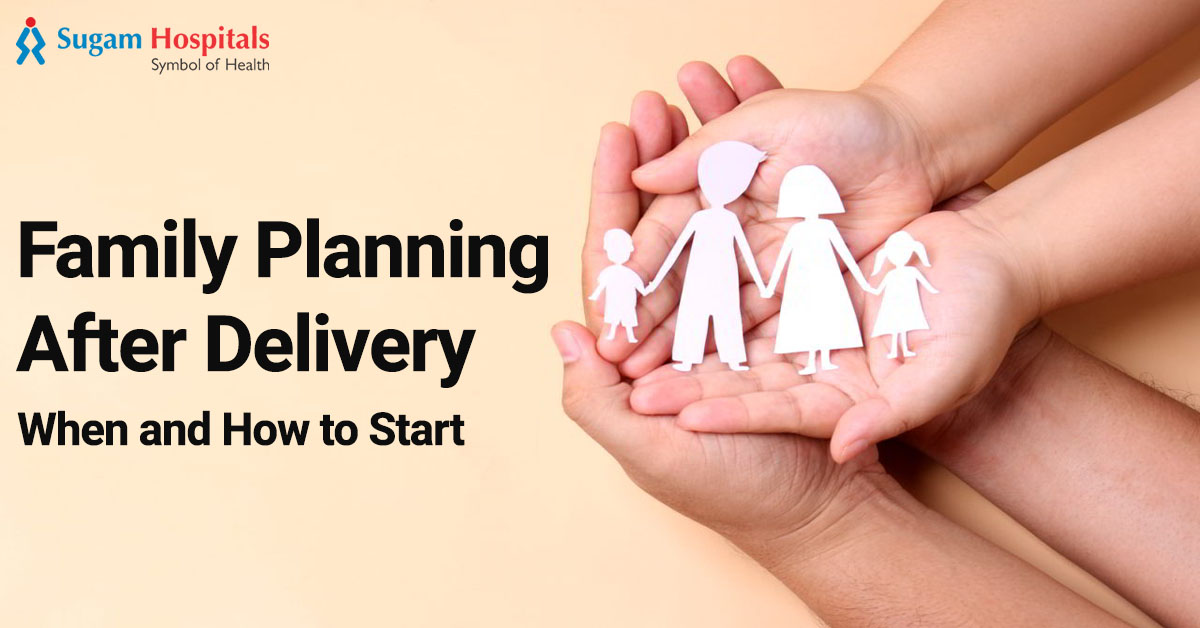Family Planning After Delivery: When and How to Start

Family Planning After Delivery: When and How to Start
August 13, 2025 by adminThe time a woman’s body and mind go through after the birth of a child is vital. Between the joys and challenges of caring for a newborn, the question of family planning often comes up; when do you begin? How can one approach it in a safe, effective way? Knowing the best practices for family planning after you have delivered it will be the crucial part for the health and well-being of both mother and child.
Why Family Planning Matters After Delivery
Postpartum, a woman’s body experiences a lot of changes as it heals from childbirth and gives itself the opportunity for future pregnancies. Family planning when a woman has just given birth, will help ensure pregnancies are spaced appropriately, and avoid potential health risks to both mother and baby.
Appropriate birth spacing leads to reduced risk for complications such as maternal anemia, low birth weight, and preterm birth. In addition to the adverse health outcomes associated with poor birth spacing, it also allows families the space and time to enjoy their newborn and focus on their care without the immediate burden of having to consider another pregnancy.
When to Start Family Planning Postpartum
There is no one answer to when to start family planning after delivery. The best time will depend on multiple factors such as the mother’s health, breastfeeding status, and preferences. Women are generally told to wait at least six weeks postpartum to start methods of contraception. This waiting period allows for some initial healing after delivery and for the woman to have her postpartum check-up with her health provider.
However, keep in mind that fertility can return even before menstruation. This is particularly important in the case of women who are not exclusively breastfeeding. Women can ovulate as early as three weeks after delivery, leaving the possibility for conception without any precautions. Therefore, it is recommended that you discuss family planning methods as soon as possible after birth.
Choosing the Right Family Planning Method
Choosing postpartum birth control depends on personal circumstances and medical history. For example, hormonal birth control (the pill, patch or injections) is effective but may not be ideal right away for mothers who breastfeed, since some hormones can reduce milk output. Copper IUDs, a type of non-hormonal birth control, give long-lasting protection, and don’t impact the quality or amount of breast-milk a woman produces.
Barrier methods include protection against sexually transmitted infections as well. Permanent methods, like tubal ligation, are typically considered once a woman is done having children, and are generally performed at the time of cesarean section, or shortly after delivery of a baby.
A woman’s health care provider can help her sort through the many options available, and outline the benefits and side effects, to recommend a method with the least risk and the most convenience to the new mother.
Breastfeeding and Its Role in Family Planning
Many women experience the delay in their return to fertility while exclusively breastfeeding, which is referred to as lactational amenorrhea. Breastfeeding is a method of family planning (temporary) when breastfeeding is established properly and done in the right way, which lasts up to six months postpartum. However, strict feeding patterns will determine effectiveness, and once a mother starts introducing complementary foods or decreases the frequency of breastfeeding, fertility may return.
Regardless, although breastfeeding provides some protection, it certainly shouldn’t be the only method relied upon for family planning, particularly if avoiding pregnancy altogether is the desired outcome.
Communicating with Your Partner and Healthcare Provider
Effective and open communication is crucial in your family planning after birth. Discussing your goals, concerns, and preferences with your partner in family planning discussion ensures that your partner is being responsible and supported. If you consult with a gynecologist early enough, you will get specific advice tailored to you and your medical history and the birth.
Regular follow-ups give the opportunity to reassess family planning decisions and adjust if necessary.
Conclusion
Family planning after delivery is a personal decision and an important method of care that can affect the well-being of a mother and her child. The right time for family planning, understanding your choices and seeking professional help will ensure that you will have the most effective and safest birth spacing options.
If you’re a new mother in Chennai who is searching for accurate advice and care, guidance from a gynecologist specialist in Chennai can help offer the framework needed to make informed family planning decisions.

